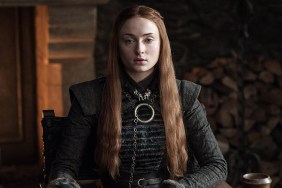Julia Jentsch as Sophie Magdalena Scholl
Fabian Hinrichs as Hans Scholl
Gerald Alexander Held as Robert Mohr
Johanna Gastdorf as Else Gebel
André Hennicke as Richter Dr. Roland Freisler
Florian Stetter as Christoph Probst
Johannes Suhm as Alexander Schmorell
Maximilian Brückner as Willi Graf
Jörg Hube as Robert Scholl
Petra Kelling as Magdalena Scholl
Franz Staber as Werner Scholl
Lilli Jung as Gisela Schertling
Directed by Marc Rothemund
Summary:
A career-defining performance from Julia Jentsch drives this riveting German thriller about a young woman who valiantly fought for what she believed in, despite insurmountable injustices.
Story:
At the height of WWII, Munich students Sophie and Hans Scholl (Julia Jentsch, Fabian Hinrichs) are caught distributing anti-Hitler, anti-war pamphlets at their university. They’re arrested, imprisoned and interrogated for being members of the revolutionary faction, The White Rose, but their story would become legendary by contributing to the German people starting to question the Third Reich’s tactics.
Analysis:
The chances of a German Oscar contender being set during World War II are about as likely as it having subtitles, but Germany has been veering away from the typical Holocaust Oscar-bait to show other sides of the equation. Last year’s Oscar nominated “Downfall” was about the last days of Hitler’s Third Reich, followed by “Anapol (Before the Fall),” which inadvertently acted as a prequel with its story of two young German boys and their rigorous training to become Nazi officers. Marc Rothemund’s biodrama “Sophie Scholl – The Final Days,” has connections to both films, but if focuses instead on the little known–at least in this country–student resistance to Hitler’s actions during the war. It adds yet another piece of the puzzle to a situation that still boggles many great minds.
Sophie and her brother Hans are introduced at a meeting of The White Rose, a student group who have been writing and distributing pamphlets against the war via the mail. When they get the idea to distribute the rest of their flyers at their university, Sophie convinces her brother to let her help him, but when they’re caught, the law is quick to act in trying to quell this “dangerous resistance movement.” At this point, the film becomes about Sophie, and we spend the rest of the movie watching her journey through the Nazi judicial system, and we only see Hans again when he passes Sophie in the prison halls or in the courtroom.
This decision is very important to the story Rothemund wanted to tell, because unlike her brother and his friends, who were very active in the White Rose’s schemes, Sophie was more of a strong-willed bystander who just happened to be in the wrong place at the wrong time. You couldn’t tell that from the way she faces the Nazi interrogator Robert Mohr, a company yes man who believes that it was his duty to bring down anyone who speaks out against his beloved Fürher. He finds himself facing a far worthier adversary than he expected in this petite 20-year-old woman, as she successfully deflects his blunt attempts at trying to get her to slip up and admit her wrongdoing.
The four interrogation scenes form the spine of the film, each of them a lengthy dialogue driven scene done in one take sans edits, and they allow two of Germany’s finest actors to fully show off their craft. It’s an amazing turn for Julia Jentsch, whose previous role as the love interest in a triangle in last year’s “The Edukators,” brought a lot to a similarly-themed film about young people standing up for what they believe. Her interrogator is played by Alexander Held, who appeared in both of the German WWII films mentioned above, and their face-offs are equal or greater to the classic Foster-Hopkins moments in “The Silence of the Lambs,” except of course, these are real conversations taken from the transcripts. Because of her strong resolve, Sophie is almost able to talk her way out of her predicament as a bond forms between these two unrelenting forces, and as he is ready to give up, Mohr becomes willing to discuss and debate their philosophical ideologies.
The actual trial of Sophie and her brother is a farce, as they’re questioned in front of a room full of Nazi officers by a judge who has absolutely no interest in anything they have to say in their own defense. It’s a kangaroo court and a formality more than anything else. If you know Scholl’s story, you’ll know how it turned out, but that doesn’t stop you from wishing that Rothemund diverged away from the truth to give the film a happy Hollywood ending, because it’s fairly shocking to see how the Nazis decide to deal with this woman who wasn’t really that much of a threat.
More than anything, “Sophie Scholl” is another fine example of the recent Renaissance in German cinema. The number of quality films on the subject of WWII shows there was more to the German mindset during the period than the barbarians we see in most American films, and the country’s ability to take an unbiased look at its own past and the wrongs of its ancestors is a step in the right direction for the country’s progress. Rothemunde joins the ranks of young German directors looking to explore the current problems in the world by revisiting the past, and his stirring drama makes you think long and hard about our own country and how much better we have it than Nazi Germany. As obvious as that may seem, the thought of a government so unrepentant in its own wrongdoings that it will execute anyone who speaks out against them is enough to give you chills.
The Bottom Line:
This is a fascinating film, not only for those interested in another look at the era from a German point of view, but also for anyone who appreciates fine dramatic filmmaking, because the powerful writing and acting are more than deserving of the film’s Oscar accolades. Sophie’s story is a great lesson for younger Americans unsure of how to voice their opinion on our own country’s current political situation, because she teaches how one should stand up for their beliefs no matter where it leads.
Sophie Scholl – The Final Days opens in New York on February 17, in Los Angeles on February 24, and elsewhere in the coming weeks.









